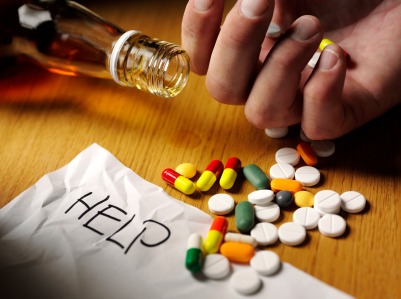
11 Mar Dealing with Addiction
Recently I saw a couple of encouraging articles in the news which inspired me to write a brief post about dealing with addiction. I will link to the two articles at the end of this post.
–
Addiction is an issue that comes up all the time in therapy. Sometimes it appears in very overt and obvious forms – such as substance misuse, gambling, or sex addiction – but often in more covert and subtle ways as well, such as compulsive exercise, workaholism, or obsessive thoughts and habits. In many ways all humans are addicts, as we are creatures of habit; we thrive on things that are familiar and comforting, and carve out repetitive patterns for ourselves. This is no bad thing, as it means that we can create healthy routines, or stick to a structured approach when making changes or adjustments; but it can also be dangerous and become an unhealthy, destructive force where a reliance on a certain way of thinking or behaving can start to interfere with the rest our lives.
So, why is it that some people can keep their habits under control and choose healthy routines for themselves, whereas others find themselves losing control to harmful urges? What decides whether we will find a healthy or an unhealthy outlet for our need for comfort? This is a complex issue, with numerous answers (see Gabor Mate’s talk on The Power Of Addiction for some great points), but I think these three are the most important:
1. Psychobiology. Some people inherit genetic traits or learned behaviours from their ancestors, where they may be predisposed to certain ways of thinking or doing things, or have a particular physiological ‘weakness’ for a certain substance.
2. Environment. We are hugely influenced by our surroundings, and by our social networks (see Nicholas Christakis’ wonderful talk on The Hidden Influence Of Social Networks for more information). The people around us shape our ideas of accepted norms and influence the behaviours that we establish; we often look to see how others are coping with their lives, and then we copy them.
3. Early attachment experiences. Our early experiences shape our identities and also, crucially, our emotion regulation strategies. If we have positive attachment experiences then we learn that we can rely on others, and turn to them during times of need; and this also teaches us that we are ‘worthy’ of other people’s care and attention. However, if we have negative attachment experiences then we learn that we cannot rely on others, and instead have to develop our own methods of self-soothing; and this also teaches that we are ‘unworthy’ of other people’s care and attention. It’s this latter group of people who often seek external sources of affirmation and validation, which can slip into addictive cycles: if it doesn’t feel emotionally safe to turn to other people for reassurance, then they will seek that comfort from the escapism and rush of sex, drugs, or gambling instead.
Amazingly, many addiction treatment programs continue to focus on only the first of those three issues. They see addiction simply as a psychobiological disease, and they dissect the cognitive, behavioural, and physiological components of this disease, and then set out to replace previous bad habits with healthy new ones. However, they often overlook the crucial factors of social networks and attachment experiences; factors which will be massively influential on a person’s chances of maintaining their recovery over time. I believe a crucial element in treating addiction is to process and repair negative attachment experiences from the past, and then to create new, healing attachment experiences in therapy; so that a client can feel a sense of attunement, and learn that it’s safe to turn to others for soothing and reassurance, rather than having to self-soothe or seek out alternative sources of validation. This process also empowers the client to develop a new sense of worthiness, overcoming internalished shame from past rejection, and recognising that they are indeed deserving of the attention, care, and love of others.
I spent several years as the Clinical Lead of a substance misuse treatment agency within the NHS in North London, and always made sure that we were taking a holistic approach to our clients’ recovery; addressing all three of the factors I list above. I continue to use this approach in therapy with my clients.
–
Now, here are the two articles I referred to earlier:
1. A Huffington Post article, titled “The Likely Cause Of Addiction Has Been Discovered, And It Is Not What You Think”.
2. An NPR article, titled “What Heroin Addiction Tells Us About Changing Bad Habits”.
Hopefully you will find them as informative as I did. And if you are seeking information or therapy for issues related to addiction, then please do feel free to contact me.


No Comments